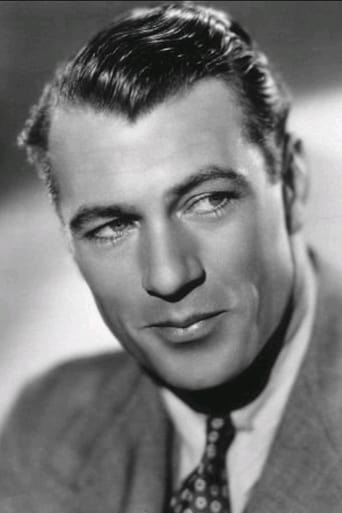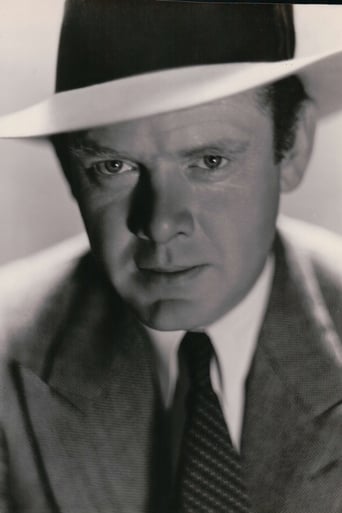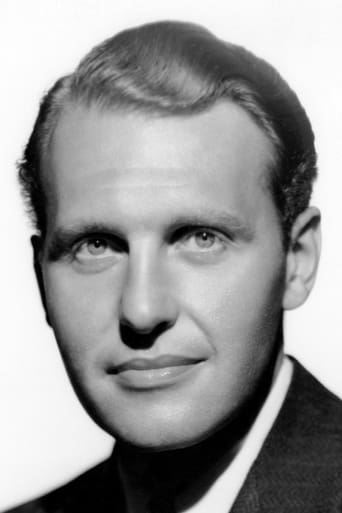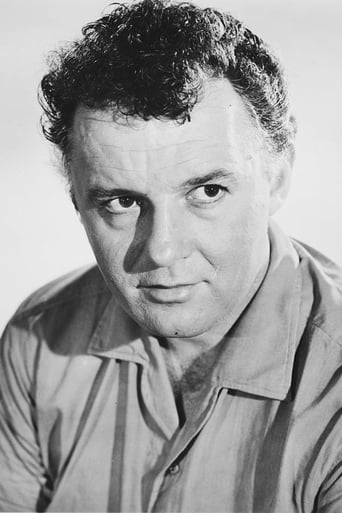Sexyloutak
Absolutely the worst movie.
Baseshment
I like movies that are aware of what they are selling... without [any] greater aspirations than to make people laugh and that's it.
FirstWitch
A movie that not only functions as a solid scarefest but a razor-sharp satire.
Erica Derrick
By the time the dramatic fireworks start popping off, each one feels earned.
derekcreedon
It was known as ONE MAN MUTINY in the U.K. since Billy Mitchell's was not a name to conjure with over here. (Warners had a similar problem with the Alan Ladd vehicle THE McCONNELL STORY which wound up as TIGER IN THE SKY). I'd never heard of Mitchell either before this but had connection at the time with the world of military protocol and what happened when you broke the rules, if only as a humble National Serviceman. A courtroom drama was always a draw, here allied with a recreation of the Twenties in the new CinemaScope and a score by Dimitri Tiomkin which appropriately stiffened the sinews and summoned up the blood. Gary Cooper cut an impressive figure in his uniform and though I now learn that he wasn't everybody's choice for the part his HIGH NOON image - the lone man of integrity at odds with his own community - probably made him more sympathetic.War-hero Mitchell was tried for insubordination after speaking out of turn to the press about the Army's indifferent attitude to his beloved Air Service - underfunded and undervalued, losing fliers in clapped-out planes (on peacetime exercises and duties) and unconvinced by Mitchell's vision of the future role and importance of aerial combat. Found guilty, which technically he was, he was suspended for five years without pay but later chose to resign (not shown in the film). History was to thoroughly vindicate his stance and the man himself posthumously recognised and honoured (not shown either) but it still seems pretty courageous, in the politically-touchy Fifties, to mount a production in which the military establishment is the 'heavy'. All grist to the mill, however, for Otto Preminger who delighted in giving the censors sleepless nights though Mitchell's attack is somewhat softened. "You want to give the Army a kick in the pants but you want to do it like a gentleman," his counsel wryly observes. In reality the in-fighting was a good deal more abrasive but Coop, true to his movie-code, never sneaks a low blow.Charles Bickford, in his third and final film for Preminger, heads up the support as Mitchell's austere C.O. who becomes an implacable opponent. Twenty years earlier he was the villain Latigo to Coop's Bill Hickok in THE PLAINSMAN. Ralph Bellamy, for so long the squarejohn who never got the girl in Thirties comedies, bounced back on the screen after ten years away treading the boards with a zesty turn as Billy's attorney whose achieving of a deal with the court is scuppered when his client resolutely refuses to compromise. The young Rod Steiger, back in the days when he was prone to show his teeth and sneer at the camera, gives one of his more modulated performances as the prosecution's hired gun, possibly overawed by Preminger (an even bigger ham on set). I like the way he introduces himself by rapping on the table, as if respectfully knocking at the door before moving in to nail his prey, even sharing a joke with the defendant during their pertinent exchanges. In the film Mitchell is given a bout of malaria to also contend with during the trial. Whether this was authentic or a device to help bolster Coop against the new boy's darting swoops and tricks is interesting to consider. All this is taking place, of course, during Prohibition - which explains why Billy is only offered a glass of milk when he visits the Landsdownes' apartment. Preminger respects his audience sufficiently not to elaborate here though Billy tactfully doesn't drink it. We're left to wonder whether young clean-cut Commander Zack might have a covert bottle or two stashed away. Maybe even Crazy Otto couldn't go that far...
Spikeopath
The first World War had just ended in total victory for the United States and its Allies. Now war was a thing of the past, America disbanded its army and stabled its navy, its air force was still an unwanted child. In 1921 off the coast of Virginia, the high command of the army and navy gathered to consider a revolutionary experiment.William Mitchell was a controversial and famous character in American aviation history, his beliefs and future ideas as regards the importance and advancement of aviation in war got him into so much trouble it culminated in the Court Martial of the title. Though this Otto Preminger directed telling is not completely accurate in its history lesson, it is however (thanks to Gary Cooper's excellent portrayal) an excellent depiction of the man and his staunch nature. Naturally the picture is reliant on long pieces of dialogue, so really if anyone is after a blitzkrieg type war film then they should steer well clear, for this is a lesson in letting talking lead the way, and thus opening the door for the actors to do their respective stuff. Rod Steiger (solid if dangerously close to mugging too much), Ralph Bellamy, Charles Bickford and Elizabeth Montgomery round out the cast with varying degrees of success, but really it's with Gary Cooper that the films borders on success or failure, thankfully he comes thru with a fine line of sympathetic emotion that lifts the piece just above being middle of the road. 6/10
bkoganbing
Otto Preminger put together a real good cast to tell the story of The Court Martial of Billy Mitchell, considered by many to be the spiritual founder of the American Air Force. Gary Cooper was only a few years older than Billy Mitchell when he chose to publicly criticize the existing services and invite a court martial and fits the part as right as he did when playing Lou Gehrig.What to do and who would control the airplane as a strategic weapon was a running debate even before World War I. By the time that Mitchell court martial took place in the mid Twenties, nearly every other country with the means had founded a separate Air Force. America would not have a separate Air Force until 1947 when the Army and Navy were put under one Department of Defense and an Air Force created from those members of the Army Air Corps who wished to join.No one ever doubted the airplane had some value in war time. Those like the general Charles Bickford played who is an amalgamation of many in the service that Gary Cooper unsuccessfully dealt with, saw it as a thing for scouting, maybe transportation. Billy Mitchell saw it as far more than that. Mitchell fought hard for money that to further develop airplanes that the Army and Navy wouldn't even ask Congress for if Congress were so disposed to give it back then. After several fliers were killed in some planes that were little more than kites with motors, Mitchell lambasted both services and got his court martial.Military historians from then till now still debate the value of the airplane in war. The best that can be determined is that air superiority can give one an edge in a close contest. It can't win a war all by itself. If it could Great Britain would have surrendered after the blitz or Germany would have been pounded into submission by Army Air Force and RAF bombing of the place for three years, starting even before one American soldier was in ground combat.My favorite analogy has always been the difference between the landings at Salerno in 1943 and in Normandy in 1944. In The Longest Day there's a famous scene where two airplanes take off and make a strafing run on one of the beaches and then fly away. That was the sole contribution of the Luftwaffe, by then they had no more contribution to make.A year before at Salerno, the battle took three weeks with planes from the Allies and the Axis engaged before Allies were established. It was a close run thing as the Duke of Wellington said about another battle a century earlier. Planes do make a difference, but they're not the whole ballgame.Billy Mitchell chose a course that finished his career in the U.S. Army. He knew it would end this way and he did it anyway. The military as an institution is resistant to change as most everyone agrees. Mitchell fought for air power and airplane development as a civilian as long as his health permitted. Besides Cooper and Bickford the most noteworthy two performances in the film are Ralph Bellamy as Republican Congressman Frank R. Reid from Illinois who served as Mitchell's civilian defense counsel in the trial and Rod Steiger who played the hired gun from the Judge Advocate General's office who conducts a devastating cross examination of Cooper on the witness stand.The Court Martial of Billy Mitchell is a good dramatization of one of the great criminal trials of the last century. And it's a wonderful story about sacrificing one self for an idea you believe in.
Lee Eisenberg
Having fought heroically in World War I, Gen. Billy Mitchell (Gary Cooper) tried to get his superiors to establish an Air Force. When they refused, he disobeyed orders and was sent to Fort Sam Houston, demoted to the rank of colonel. After there are two fatal crashes in which the planes were not properly equipped, Mitchell denounces his superiors and is put on trial for insubordination. While the prosecution tries to prove that he made the statements, Mitchell does everything possible to show that the statements were justified.The movie seems to have even more relevance today, with the story about the Humvees in Iraq that lacked sufficient armor. The army brass could really use some advice from Billy Mitchell.As a side note, it was interesting seeing Elizabeth Montgomery (as the widow of Mitchell's friend who gets killed in one of the crashes) before she starred on "Bewitched".




